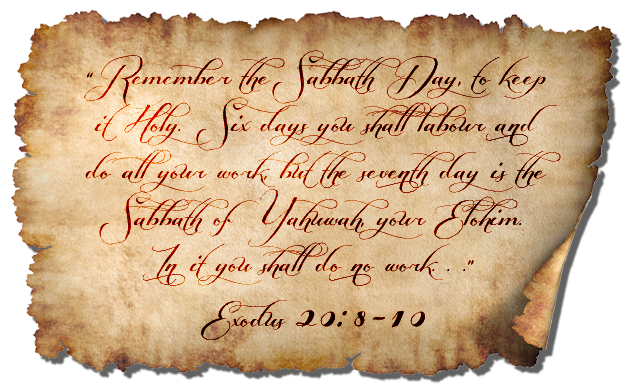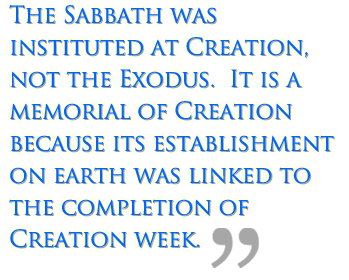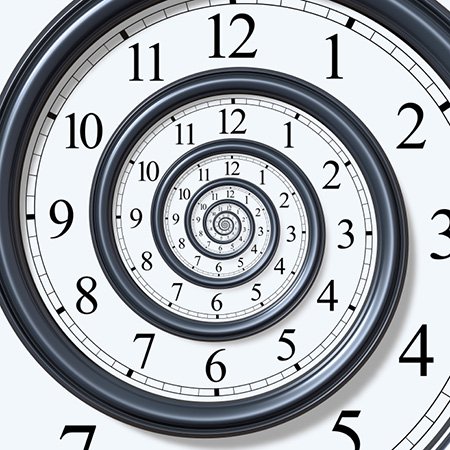The seventh-day Sabbath, as part of the divine law, is binding upon all peoples throughout all time. Of all the commandments, no other commandment is broken so frequently and with such boldness as the fourth commandment.

Christians who would not dream of worshipping idols, swearing, lying, stealing, murdering or committing adultery, do not hesitate to break the Sabbath commandment. Satan has deceived multitudes into believing that the Sabbath was “only for the Jews” and that it was somehow “nailed to the cross.” Having set aside the seventh-day Sabbath, the majority of the Christian world worship on Sunday to “honor the day on which Jesus was raised from the dead.” Such reasoning contradicts Scripture which teaches that Elohim “is the same, yesterday, today, and forever.” (Hebrews 13:8) The divine Law-giver declares: I am Yahuwah, I change not. (See Malachi 3:6.) Furthermore, Scripture teaches that no matter how carefully a person keeps the law, if he breaks even one, he is guilty of breaking the entire law!
“For whoever shall keep the whole law, and yet stumble in one point, he is guilty of all. For He who said, ‘Do not commit adultery,’ also said, ‘Do not murder.’ Now if you do not commit adultery, but you do murder, you have become a transgressor of the law.” (James 2:10, 11)
The person who keeps the whole law but breaks the Sabbath, still transgresses the law!
 Yahuwah expects all to keep His law, not just the Jews. The Sabbath was part of the eternal law over 2,000 years before there was an Israelite nation! The Sabbath was instituted at Creation, not the Exodus. It is a memorial of Creation because its establishment on earth was linked to the completion of Creation week.
Yahuwah expects all to keep His law, not just the Jews. The Sabbath was part of the eternal law over 2,000 years before there was an Israelite nation! The Sabbath was instituted at Creation, not the Exodus. It is a memorial of Creation because its establishment on earth was linked to the completion of Creation week.
“Thus the heavens and the earth, and all the host of them, were finished. And on the seventh day Elohim ended His work which He had done, and He rested on the seventh day from all His work which He had done. Then Elohim blessed the seventh day and sanctified it, because in it He rested from all His work which Elohim had created and made.” (Genesis 2:1-3)
Having been established at Creation, the Sabbath could not have been “nailed to the cross” nor could it be the exclusive “property” of the Jews. After the flood, the world quickly sank again into apostasy and idolatry. Only a few remained true to Heaven’s principles. Yahuwah selected Abram to be the forefather of the race through whom the Messiah would be born.
“Now Yahuwah had said to Abram: . . . I will make you a great nation; I will bless you and make your name great; and you shall be a blessing. . . . And in you all the families of the earth shall be blessed.” (Genesis 12:1-3)
The Israelite nation, as the descendants of Abraham, was honored above all other nations of the earth who had rebelled against Heaven. They were entrusted with the divine law as its safe-keepers. During the long years of bondage in Egypt, the Israelites had largely lost the Sabbath. Moses taught the Israelites that the keeping of the divine law was a prerequisite for their deliverance. It was for this reason that Pharaoh accused Moses and Aaron of influencing his slaves to stop work.
“And the king of Egypt said unto them, Wherefore do ye, Moses and Aaron, let the people from their works? . . . And Pharaoh said, Behold, the people of the land now are many, and ye make them rest from their burdens.” (Exodus 5:4, 5, KJV)
The word “rest” (Shavath, #7673) has close etymological roots with “Sabbath” (Shabbath, #7676). The Sabbath was not presented as a new requirement at the Exodus. It was reinstituted as a perpetually binding requirement of the divine law.
“And Yahuwah spoke to Moses, saying, ‘Speak also to the children of Israel, saying: “Surely My Sabbaths you shall keep, for it is a sign between Me and you throughout your generations that you may know that I am Yahuwah who sanctifies you. You shall keep the Sabbath, therefore, for it is holy to you. . . . Work shall be done for six days, but the seventh is the Sabbath of rest, holy to Yahuwah. . . . Therefore the children of Israel shall keep the Sabbath, to observe the Sabbath throughout their generations as a perpetual covenant. It is a sign between Me and the children of Israel forever; for in six days Yahuwah made the heavens and the earth, and on the seventh day He rested and was refreshed.” ’ ” (Exodus 31:12-17)
 Yahuwah positioned their nation in an important geographical location so that they could teach all the surrounding nations the binding requirements of the divine law. Unfortunately, they jealously withheld the very law they were to teach to others. The idea, that the law of Yahuwah is the exclusive property of the Jews, originated with the Israelites. To this day, Jews pride themselves on being “children of Abraham” and “heirs of the promise.” Paul rejected such reasoning. He bluntly stated:
Yahuwah positioned their nation in an important geographical location so that they could teach all the surrounding nations the binding requirements of the divine law. Unfortunately, they jealously withheld the very law they were to teach to others. The idea, that the law of Yahuwah is the exclusive property of the Jews, originated with the Israelites. To this day, Jews pride themselves on being “children of Abraham” and “heirs of the promise.” Paul rejected such reasoning. He bluntly stated:
For they are not all Israel who are of Israel, nor are they all children because they are the seed of Abraham; . . . those who are the children of the flesh, these are not the children of Yahuwah; but the children of the promise are counted as the seed. . . . For there is no distinction between Jew and Greek, for the same Elohim over all is rich to all who call upon Him. For ‘whoever calls on the name of Yahuwah shall be saved.’ (See Romans 9:6-8, 10:12, 13.)
Those of Israelite blood who do not keep the law will be lost with all who reject the divine law. All who keep the law are considered children of Abraham and inherit the promise of eternal life.
For you are all sons of Yahuwah through faith in Yahushua the Anointed. . . . There is neither Jew nor Greek, there is neither slave nor free, there is neither male nor female; for you are all one in the Anointed One, Yahushua. And if you are Yahushua’s, then you are Abraham’s seed, and heirs according to the promise. (See Galatians 3:26, 28-29.)
The seventh-day Sabbath, like all of the divine law, is perpetually binding upon mankind. It will be a day of worship throughout all eternity.
“ ‘And it shall come to pass that from one New Moon to another, and from one Sabbath to another, all flesh shall come to worship before Me,’ saith Yahuwah.” (Isaiah 66:23)
The reference to New Moons indicates which calendar will be used to count to the seventh-day Sabbath: the luni-solar calendar established at Creation. The final generation will honor Yahuwah by worshipping Him on His Sabbath while the rest of the world chooses and enforces another day of worship. Revelation reveals that the final conflict that comes at the end of the world will involve a counterfeit system of worship with a false day of worship, enforced by the power of the state.
“So they worshiped the dragon who gave authority to the beast; and they worshiped the beast . . . [and another beast] exercises all the authority of the first beast in his presence, and causes the earth and those who dwell in it to worship the first beast . . . And he deceives those who dwell on the earth . . . He was granted power to . . . cause as many as would not worship the image of the beast to be killed.” (Revelation 13:4, 12, 14-15)
 Despite the dangers, the final generation stand firm for the law of Yahuwah, and worship Him on the true Sabbath.
Despite the dangers, the final generation stand firm for the law of Yahuwah, and worship Him on the true Sabbath.
“Those from among you shall build the old waste places; you shall raise up the foundations of many generations; and you shall be called the Repairer of the Breach, the Restorer of Streets to Dwell In. If you turn away your foot from the Sabbath, from doing your pleasure on My holy day, and call the Sabbath a delight, the holy day of Yahuwah, honorable . . . .” (Isaiah 58: 12, 13)
Those who return to the worship of the Creator on His holy Sabbath, restoring the use of His luni-solar calendar when the rest of the world declares the Sabbath to be done away with, will be greatly honored in Heaven. Scripture declares:
Here is the patience of the saints; here are those who keep the commandments of Yahuwah and the faith of Yahushua. (See Revelation 14:12.)
The Sabbath will be kept by all of Yahuwah’s faithful people, throughout all eternity. It will forever remain the sign of their loyalty to their Creator and Redeemer. Choose you this day whom you will serve and worship Him who made the heavens and the earth, the sea and all that in them is.







